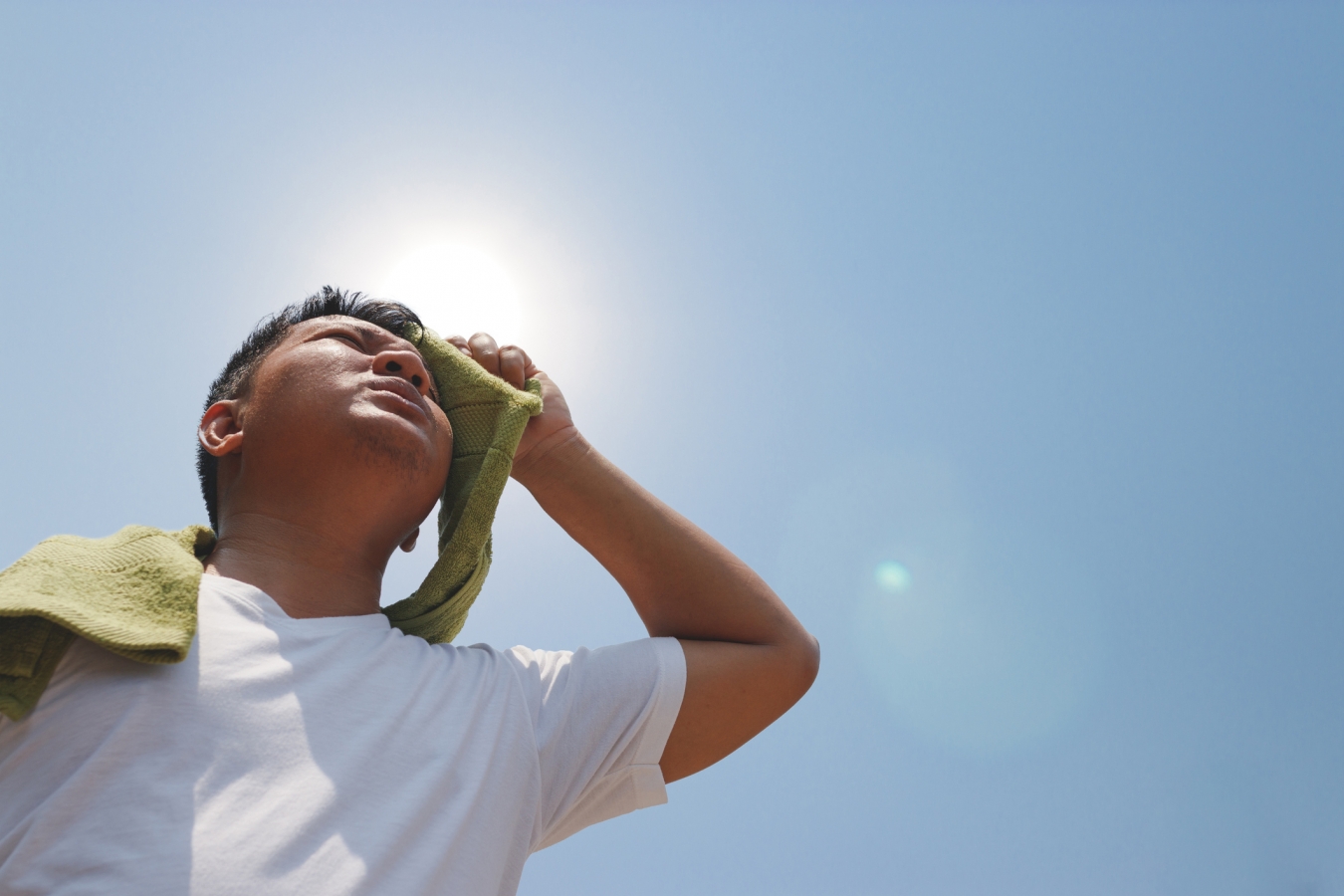


 7:9:54
7:9:54  2019-11-13
2019-11-13  1043
1043

According to a recent study, there is an association between hotter temperatures and an increase both in the number of hospital visits for mental health reasons and in suicide rates.
Suicide is one of the leading causes of death in the United States and globally.
According to the National Institute of Mental Health, in 2017, suicide claimed the lives of 47,173 people in the U.S., which is more than double the number of homicides.
Of course, behind every suicide, there is a convoluted, interlinked web of causal factors.
Unpicking the vast array of potential risk factors that can link to suicide is challenging work.
However, because suicide rates in the U.S. have steadily increased from 2001 to 2017, understanding these factors is more pressing than ever.
A group of scientists from the University of Massachusetts Amherst and California Polytechnic State University, San Louis Obispo, is interested in the role of climate. The investigators recently published the results of their latest study in the Journal of Health Economics.
Data mining on a grand scale
Looking for a relationship between environmental conditions and mental health is not a new idea. However, as the climate crisis takes center stage in public discourse, the role of climate in psychological well-being has entered the spotlight.
Earlier studiesTrusted Source have identified links between temperature and mental health, but, to date, much of this research has focused on relatively short periods and only looked for associations rather than causal factors.
Also, the findings have been contradictory, and not all studiesTrusted Source have reached the same conclusions. The researchers behind the current study hope to address some of the earlier shortfalls and produce a definitive answer. They have attempted this by collecting and analyzing vast amounts of information.
To investigate, the scientists used several different sources. Firstly, they gathered data from Californian emergency departments, collating information about visits relating to mental health diagnoses from 2005 to 2016.
Secondly, they gained access to information about suicides in the U.S. from 1960 to 2016.
Thirdly, they took data from a nationally representative survey that had more than 4 million respondents between 1993 and 2012. This information included self-reported mental health statuses.
The authors also collated information about other factors that might influence any relationship between temperature and mental health, including access to air conditioning, availability of mental health services, insurance coverage, accessibility of substance abuse treatment, and income levels.
The authors were able to develop "fine spatial and temporal scales," drilling down to the temperatures in each month in each county of the U.S.
Temperature and mental health
Overall, the authors concluded that cooler temperatures decrease the level of adverse mental health outcomes and that warmer temperatures increase negative health outcomes. They provide further detail:
"Our main estimates imply that increasing average monthly temperature by 1°F leads to a 0.48% increase in mental health [emergency department] visits and a 0.35% increase in suicides."
They also show that their estimates remain stable over time — in other words, people do not seem to adapt to changes in temperature very quickly. The authors explain that they found "no evidence of effective adaptation to the identified effects anywhere — or among any group — in the U.S."
Similarly, the authors also showed that their estimates remained stable even when they accounted for levels of air conditioning adoption and socioeconomic status.
Reality Of Islam |
|

Labor short

A new ultra

Batteries p
 9:3:43
9:3:43
 2018-11-05
2018-11-05
10 benefits of Marriage in Islam
 7:5:22
7:5:22
 2019-04-08
2019-04-08
benefits of reciting surat yunus, hud &
 9:45:7
9:45:7
 2018-12-24
2018-12-24
advantages & disadvantages of divorce
 11:35:12
11:35:12
 2018-06-10
2018-06-10
 6:0:51
6:0:51
 2018-10-16
2018-10-16
 2:42:26
2:42:26
 2023-02-02
2023-02-02
 2:5:14
2:5:14
 2023-01-28
2023-01-28
 2:33:4
2:33:4
 2023-02-15
2023-02-15
 8:15:37
8:15:37
 2023-02-16
2023-02-16
 3:18:29
3:18:29
 2022-12-24
2022-12-24
 8:19:41
8:19:41
 2018-06-21
2018-06-21
 2:34:48
2:34:48
 2022-01-18
2022-01-18
 5:41:46
5:41:46
 2023-03-18
2023-03-18
| LATEST |